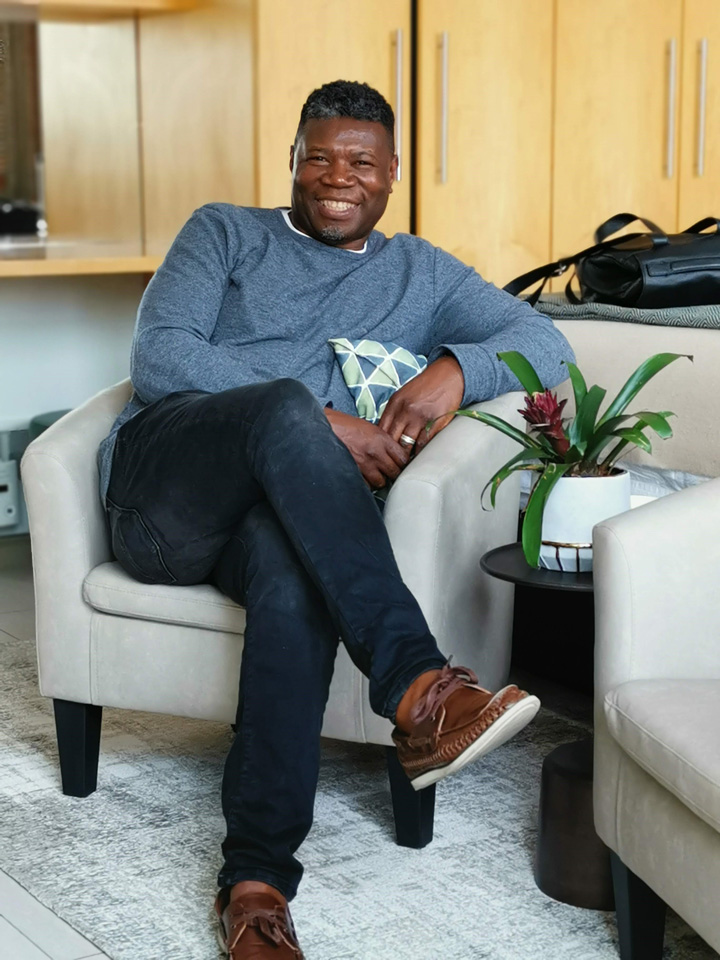Recovering from sex, porn and
love addictions: bringing hope
to Christians too
23 September 2020
Paul Huxley asks former Christian Legal Centre
client Gary McFarlane about his work helping people
with sex, porn and love addictions.
On 15 January 2013, the world’s media gathered at Christian
Legal Centre’s London offices in expectation of the result of
four landmark Christian freedom cases at the European Court
of Human Rights.
One of these was Gary McFarlane. “I was transitioning from
being a solicitor to a counsellor… As my legal case progressed,
I started to use the expression ‘I know that this is bigger than
Gary McFarlane and is not about me.”
As a volunteer counsellor with Relate, Gary had been asked
how he’d feel about leading a same-sex couple in directive
sex
therapy. Although Gary had never had to provide sex therapy
to a
same-sex couple, he thought that if the situation did arise,
he would
be able to discuss his Christian views with his supervisors
so that
his position could be discussed and, if necessary, be
accommodated.
Instead, he was dismissed for gross misconduct.
The European Court of Human Rights ruled against Gary.
The court said there had been an infringement upon Gary’s
rights under Article 9 of the European Convention on Human
Rights (freedom of thought, conscience and religion). But it
ruled that the circumstances justified that interference, and
that the UK courts had acted within the “margin of
appreciation”
(discretion) given to national courts.
The loss to Gary was very real. It was just the beginning
of many
difficulties, which he compares to the Biblical figure Job:
“Professional bodies refused my membership; hate
mail and
accusations of being homophobic was common. I was
dropped
from a counselling training course and sued to pay
their fees.
Marriage separation and divorce; the effective loss of my kids
(from their day to day development). Unemployment,
financial
debt, a diagnosis of a brain tumour, then MS …
I died and did
give up on life.”
But Gary was given the vision to keep going, seeing
God’s calling
on his life to serve people who struggled, particularly
in churches:
“If the enemy could stop me here, then I would not
qualify as a
counsellor and the knowledge God had given to me
would not
manifest. I would be stopped from providing a
therapeutic
counselling service to those in great need.
“I was shown over 20 years ago, the size of the
porn, sex and
love addiction problem in our churches, amongst
ministers
and members. Female partners had to suffer in
silence as it was
too dangerous to make the problem known in
church life: for
fear of loss of standing, career, finances, the Manse,
effect on
the children; church split and alienation of individuals
and families.
“The controversy over same sex issues was to keep
me distracted
from a way bigger problem: affairs in our churches.”
But Gary hasn’t been kept away from his calling. He
has since
launched the Kairos Centre – which offers online
therapy for sex,
porn and love addictions.

Most Christians are aware of addictions to sex and porn,
but
what does it mean to be addicted to love? Gary says:
“People seek out love and affection and attention
to fill a void
that they feel – set up from the original deficit of
bonding issues
in childhood. They are addicted to the behaviour
of finding love.
They try to fill the void with relationships and get
hurt, but
eventually go back to behaviours seeking love and
affection
and attention. It is insatiable and can never get
filled. That
is ‘love addiction’, when things like social media are
used to
find relationships; they become sexual; end with
loss and rejection,
pain and hurt; but they get up and do it again.”
The Kairos Centre offers different programmes
including one-to-one
sessions,
group work (including groups for partners of those
affected) and
brand new video-on-demand Changement programmes.
This world-first
webinar recovery programme allows people to access
help and recovery
from their home, all over the world – which may be
particularly helpful to
any struggling overseas missionaries, charity workers
and journalists
who can’t
access appropriate help locally.
The courses are aimed at anyone who has engaged in
these behaviours for at least six months and is unable
to find the change they need on their own. But it isn’t
just men who struggle with these issues. Gary tells me:
“Women, increasingly, are addicted and it is arguably
even harder for them to seek help because of the
‘shame’ of the behaviour in a woman; particularly
as a Christian woman, even a Christian woman in
ministry.
“The enemy will be having a field day with them all,
because
of guilt, shame and inability to stop even when
convicted by
the Holy Spirit. Their ability to experience their
John 10:10 –
‘I came that they may have life and have it
abundantly’ – is
compromised. Self-worth, self-value, self-belief,
are all damaged.”
The leaders of churches have the job of watching
over the souls
of church members (Heb 13:17). So many Christians
may wonder
just how the kind of help Gary offers fits in with the
care of pastors.
Would it be better to leave these problems to them?
“This is specialised work. It is outside of the
of most local pastors. Sessions are subject to
strict client
confidentiality – although if authorised by the
client, local
pastors and church workers can be great added
support.
Churches and particularly those active in ministry
would
benefit from training about the issues.” Kairos.
.jpeg)